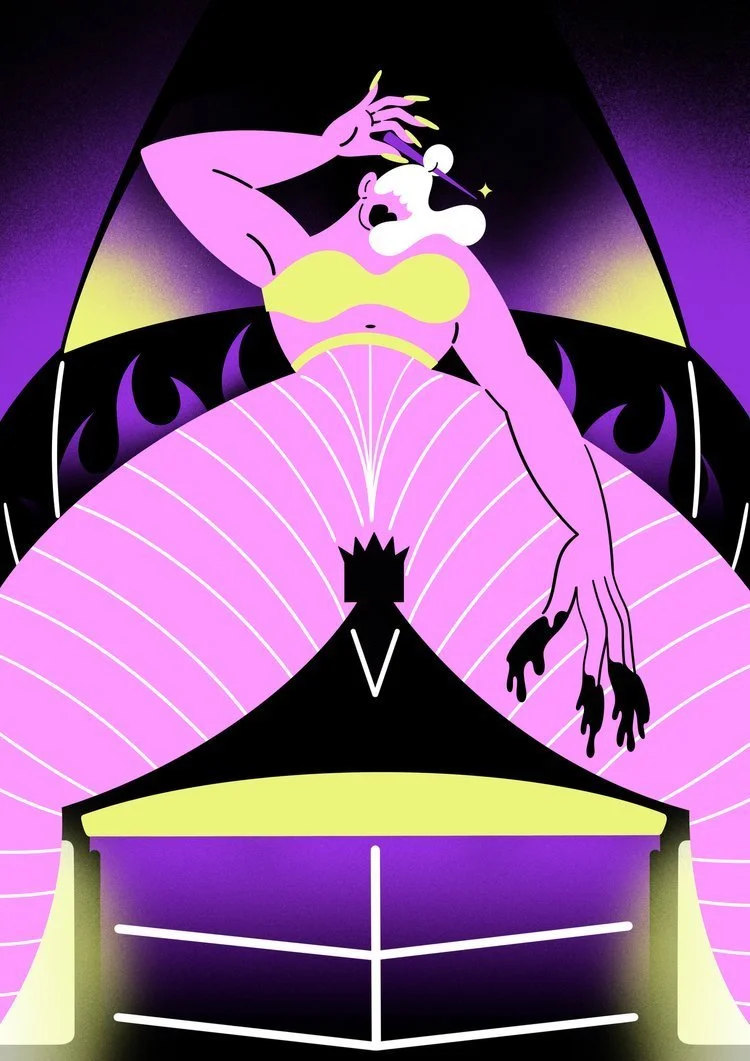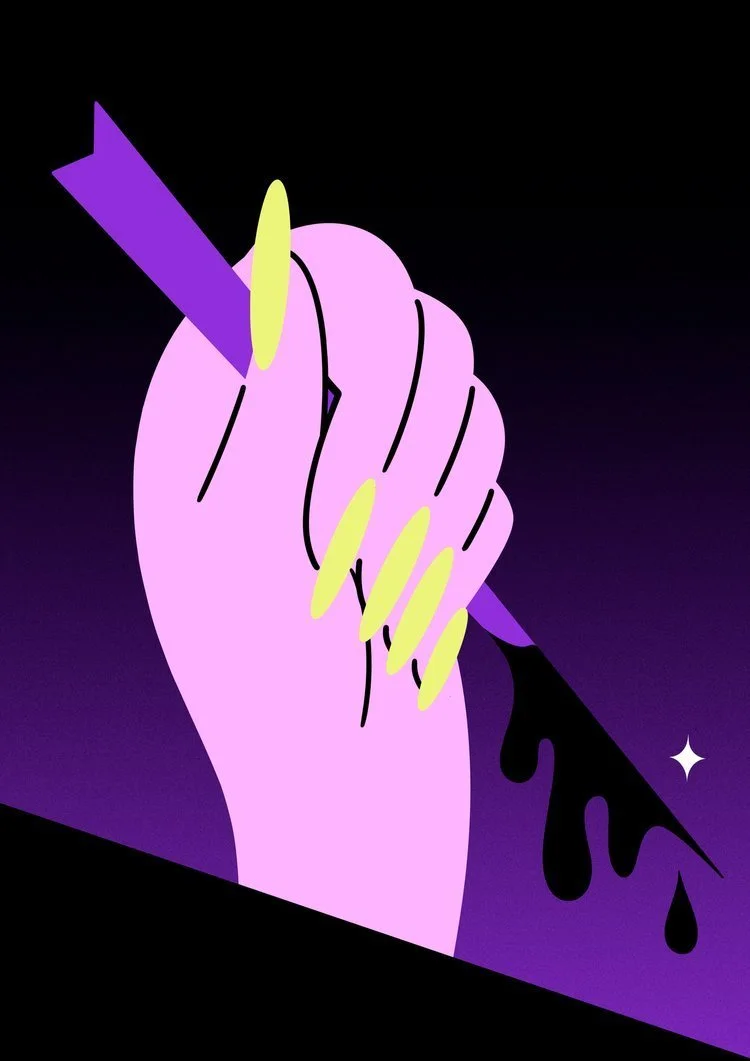Titane Captures the Weird, Wonderful World of Chosen Families
When I was 18, I had a few good mates. One was a small man in his fifties who wore a ruffle cravat and liked playing show tunes at the piano. Another was a biker in his late thirties who had a gun collection in his house. And then there were all the people I'd catch regularly at bars like The Joiners Arms in Hackney or Camden’s The Good Mixer. People who were older, stranger and bolder than myself. People who had stories to tell, but didn't always tell them. People who, somehow, made me feel more comfortable and free than anyone I went to college with.
At the time, I thought I must be a real freak. Why couldn't I make friends with people my own age, and do normal things like gossip about boys and dance to Taio Cruz in the club (this was 2010)? But as I got older I realised that it's fine to feel out-of-step with your most immediate peers. For queer people especially, it's normal to forge your own community outside the confines of what's expected – this is a language we speak fluently. And for queer people who have been rejected by blood relatives (which does not include me), chosen families are often a part of life.
When you think of Titane, the extraordinary 2021 body horror from Julia Ducournau, you probably think: that's that film about a girl who fucks automobiles! And you'd be right of course – the film is a fantastical, glistening vision of what happens when flesh and metal collide. But, more than that, it's a film about unconventional love and what it means to create your own community. In essence, it's a film that lives and breathes the idea of the chosen family.
Titane follows Alexia (played by Agathe Rousselle) – a quiet, violent loner with titanium plates in her head after a childhood car accident. After a few dramatic twists and turns that unfurl throughout the film, she flees and adopts an entirely new identity – one that doesn't even slightly resemble her old self, neither physically nor conceptually. She then forges a totally unorthodox new family structure – one not based on blood or even friendship, but on a kind of unconditional love and support. These are people who have voids to fill, and look to each other to fill them.
The idea of the “conventional family” is so often dripping in expectation. These are societal contracts which have been written for centuries. People say things like “blood is thicker than water” and “you don't choose your family.” There are expectations of traditional friendship units too, however subtle. Friends are supposed to be your age, your class, with the same background and interests as you. Which is totally wild if you think about it – what more do you need from another human being than to feel safe, loved and supported? What does all the other stuff have to do with it?
“The first thing is that Titane was born with the idea of putting love at the centre of the narrative – unconditional love, absolute love, without any form of determinism.”
The ending of Titane is just as shocking and tender and unhinged as the rest of it. I won't go into it in case you haven't watched the film (which you should by the way, it's completely insane!). But my main takeaway is that many of us will not have the support system we envisioned. We may not even have the support system we idealised for ourselves. Instead – marginalised people especially – build it from the ground up. We may not have married parents, a nice little home and a future husband, but there are endless sources from which love can spring.
I'm in my late 20s now and still feel out-of-step with some of my most immediate peers. People who work in the media often come from money and have big family houses and appear, to me at least, to fit within a certain mould. Which is fine of course – good for them! But I'm also fine with not fitting into that mould. I still have friends from all walks of life: people in their 30s, 40s, 50s, 60s. Queers and clubbers and people who have no job at all. People who don't know what Twitter is. People who love and live freely, and ask nothing of me other than to do the same.
When Julia Ducournau was at a press conference in 2021, she was asked how Titane came to be. Where on earth did this intense, erotic slice of hallucinoary chaos come from? Where did she begin when it came to crafting the story?
“The first thing is that Titane was born with the idea of putting love at the centre of the narrative – unconditional love, absolute love, without any form of determinism,” she said. And then she paused, before continuing.
“When people hear of Titane, not everyone will necessarily think of a love story,” she said, “But for me, it is a love story.”
Words: Daisy Jones | Artwork: Marylou Faure & Sign up for 30 days of MUBI for free here.


